Iranian Political Prisoner Dies Due to Unknown Injection
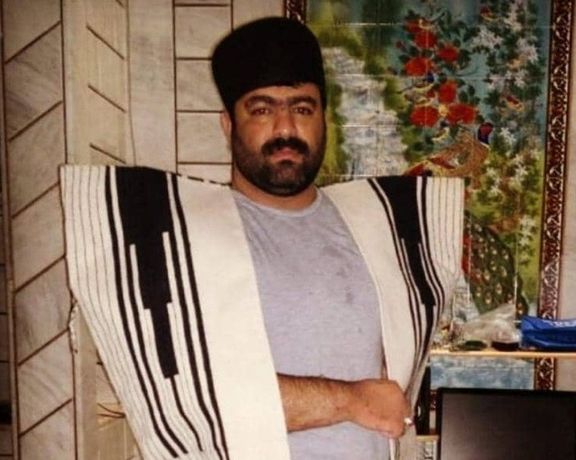
An Iranian political prisoner, who was arrested during mass protests in December 2017, has died due to the injection of an unknown substance in prison.

An Iranian political prisoner, who was arrested during mass protests in December 2017, has died due to the injection of an unknown substance in prison.
Mehdi Salehi, whose death was announced in social media on Thursday, had a stroke and went into a coma in January because of the injection of an unknown drug by Esfahan prison officials, human rights monitors said at the time.
A source close to Salehi's family told Iran International that he was chained to the bed in hospital. Recently, he had come out of coma but suddenly the family was told that he passed away.
He was among five protesters sentenced to death, with Iran Human Rights Organization warning about the possibility of authorities secretly executing them.
Large nationwide protests in December 2017 were triggered by rising prices and turned into anti-Islamic-Republic unrest in over 100 cities and towns. Hundreds of striking and protesting workers and labor activists have also been arrested since 2017, many spending months in prison. Some are still detained without trial.
In a report released this week, Amnesty International slammed Iran for prisoner deaths resulting from deliberate denial of medical care, turning prisons into "waiting rooms for death".
The global rights organization has documented how prison authorities routinely cause or contribute to deaths in custody, including by blocking or delaying prisoners’ access to emergency hospitalization.
Sixty-four of all these prisoners died inside their prison cells meaning they were not given even basic medical supervision in their final hours.
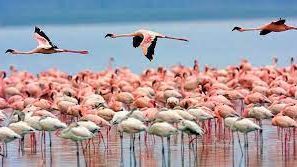
A group of more than 300 Iranian university professors, scholars, and environmentalists has written to Iran’s Supreme Leader opposing a petrochemical project scheduled for northern Iran.
In a letter published Thursday, they asked Ali Khamenei to intervene and stop the petrochemical plant near the Miankaleh wetland, Mazandaran province, which they say will have adverse environmental impacts on the coastal region. Politicians supporting the plant − which will convert natural gas to propylene, which has a range of uses in manufacturing − say it would create 75,000 jobs, but offer no evidence.
The environmentalists’ letter argued Iran already had sufficient propylene, and that a similar project in northern Iran begun by the Golestan Petrochemical company 17 years ago was in limbo although local ranches had been destroyed. The letter alleged there were around 90 abandoned petrochemical projects across the country, for which 40 construction permits had been issued under the previous government of President Hassan Rouhani.
They added that the area earmarked for the petrochemical unit in Miankaleh was high-quality agricultural land and was near to an international Unesco biosphere reserve. The environmentalists said that some work on the site – opponents of the development Tuesday cited welding for fencing and other preparations – was going on despite this week’s orders from President Ebrahim Raisi and the supreme court to pause or halt construction.
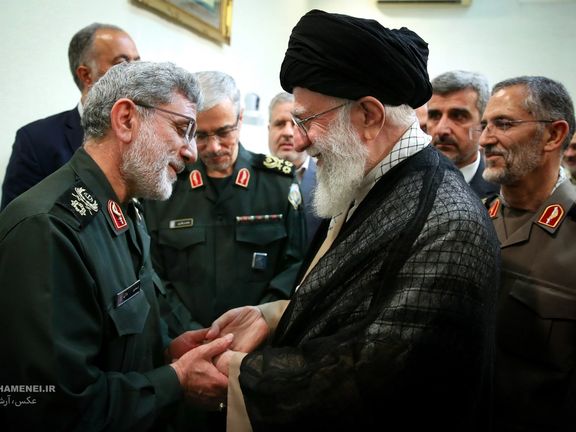
Iran will support all those who fight against “the Zionist regime” and speed up its destruction, the commander of the IRGC's Qods (Quds) Force said Thursday.
Esmail Ghaani (Qaani) also issued a threat that Iran will harshly confront Israel "wherever it feels necessary", local media reported.
"Wherever we identify a Zionist threat, we will harshly confront them, they are too small to confront us," he said.
He was speaking at a memorial service for the Revolutionary Guard (IRGC) general, Mohammad Hejazi who passed away last April, in what was said to be injuries he sustained in a chemical attack during the Iran-Iraq war. However, reports after his death mentioned Covid-19 as a possible cause.
Ghaani praised recent terror attacks against Israeli civilians that has killed 14 people. “The youth of the resistance [front] with their operation have disrupted the whole system of the Zionist regime. One Palestinian youth shakes the foundations of the Zionists, who make noise that they want to fight Islamic Iran,” the commander of IRGC’s extraterritorial force said.
Ghaani assumed the command of the Qods Force after Qasem Soleimani was killed in a US drone strike in Baghdad in January 2020. Former US president Donald Trump had approved the targeted killing, for which Tehran has vowed revenge against former US officials.
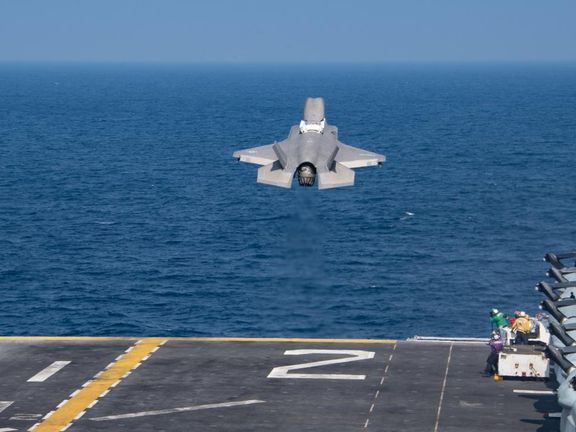
The US Navy says it is setting up a new multinational task force to patrol the waters around Yemen following attacks attributed to Iran-backed Houthi rebels.
Vice Admiral Brad Cooper, who oversees the Navy’s 5th Fleet based in Bahrain, said on Wednesday that the task force would ensure a force presence and deterrent posture in the “strategically important” Red Sea, Bab al-Mandab Strait and Gulf of Aden.
The force will be commissioned Sunday to target arms smuggling as well as trafficking of people and drugs, Cooper told reporters.
The announcement comes as Washington is seeking to reassure Saudi Arabia and the United Arab Emirates by providing additional military support following a series of missile and drone attacks on the Persian Gulf nations in recent months. Vessels in waters around Yemen are crucial for global trade, including oil supplies, and vessels have in the past been targeted by the Houthis and other forces.
According to Cooper, the new task force will impact the Yemeni Shia rebels’ ability to obtain the weaponry needed for such attacks.
Iran has long been accused of smuggling weapons to the Houthis, a charge Tehran denies.
The new naval task force will consist of up to eight vessels and will be part of the 34-nation Combined Maritime Forces, which has three other task forces in nearby waters targeting smuggling and piracy.
Its launch comes amid a two-month truce in the nearly seven-year Yemen war that has killed tens of thousands of people and displaced millions more.
With reporting by Reuters

The daughter of a conservationist jailed in Iran began a protest Wednesday at Britain’s foreign office demanding action to free her father.
Roxanne Tahbaz says the United Kingdom government has betrayed Morad Tahbaz, 66, who has Iranian, British, and American citizenship. She alleges officials misled her family over the chances of his release and were not taking further steps to secure his return to Britain.
Roxanne Tahbaz pointed out it was a month since Iran released Nazanin Zaghari-Ratcliffe, a manager for Thomson Reuters Foundation, and Anoosheh Ashuri, a retired engineer, after the UK paid a four-decade-old debt to Iran of £400 million ($530 million). “My father’s still sitting in prison and my mother’s still on a travel ban," Tahbaz told reporters outside the Foreign Office in London Wednesday.
Morad Tahbaz, who is serving a ten-year sentence on espionage charges after arrest with other environmentalists in 2018, was released from prison on furlough on March 16 after Britain paid the debt, but he was not allowed to leave the country.
Unlike Zaghari-Ratcliffe and Ashuri, Morad Tahbaz is also an American citizen, which may complicate the case.
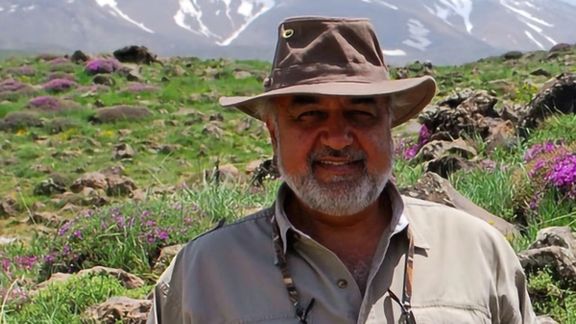
Cheap Exchange
In a commentary Tuesday entitled "Why Morad Tahbaz Shouldn't Be Exchanged for Cheap", Fars news agency affiliated with Iran's Revolutionary Guards (IRGC) said recent reports of unfreezing of $7b of Iran's assets in South Korea may be related to the possible release of American nationals detained by Iran including Tahbaz. State-controlled media, including the official IRNA news agency have periodically claimed that a deal has been finalized to release the funds.
Fars linked the Tahbaz case to those of Siamak and Bagher Namazi, dual US-Iran citizens jailed in 2015 and 2017 respectively. "It seems that the price of these two individuals and the third person should be much higher than $7 billion," Fars wrote, adding that Iranians held in the US should also be freed even if the US agreed with the release of the $7 billion.
Fars repeated claims by the IRGC intelligence organization that Tahbaz was connected to American, Israeli and British secret services operating in Iran under the guise of environmental activities to cause "damage to the country in nuclear and military areas." In other cases Iran has swapped detained foreigners for Iranians held in the US for sanctions violations, while Iran has also talked of links between prisoner exchanges and progress in talks to revive the 2015 Iran nuclear deal.
Leverage
International human rights organizations and families of dual nationals held by Iran say their detention amounts to hostage-taking to gain leverage.
While the British and Iranian governments have denied any connection between the cases of the British nationals and London’s debt to Iran, Roxanne Tahbaz alleged that British authorities had led her family to believe that her father would be part of a deal and would leave Iran alongside Zaghari-Ratcliffe and Ashuri. Her father, she said, felt abandoned by the British authorities.
A Foreign Office spokesperson said Wednesday that Iran had failed to honor a promise to release Morad on indefinite furlough. “Continuing his horrendous ordeal sends a clear message to the international community that Iran does not honor its commitments,” the spokesperson said. “We continue to urge the Iranian authorities at every opportunity to release him immediately.”
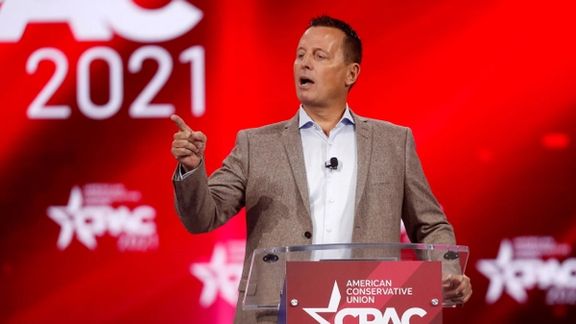
Former US ambassador to Germany, Richard Grenell says he has been sanctioned by Iran for his human rights campaigns, particularly those for the LGBTQ community.
Grenell, who was also a White House Advisor, told Iran International’s Fardad Farahzad on Wednesday that he is not surprised by the Iranian regime’s move, adding that “we know that they deny systemically, every single day, basic human rights for women, for gays and lesbians, for the general population”.
Grenell, a strong supporter of former president Donald Trump, who also tweeted similar remarks in Persian earlier in the day, said, “I’m not surprised that they see my work in Farsi and Arabic languages to push human rights as a threat. I am absolutely not surprised that they don’t want me to be speaking about these issues and try to silence me.”
Insisting that the Tehran does not sanction Democrats because they “are darting towards the Iranian regime,” he said, and added, “The Biden administration is filled with total hypocrisy. They pretend to talk about human rights, but it doesn't come into their calculus… they're talking about giving money to the Iranian regime, they dropped the sanctions on the Iranian regime.”
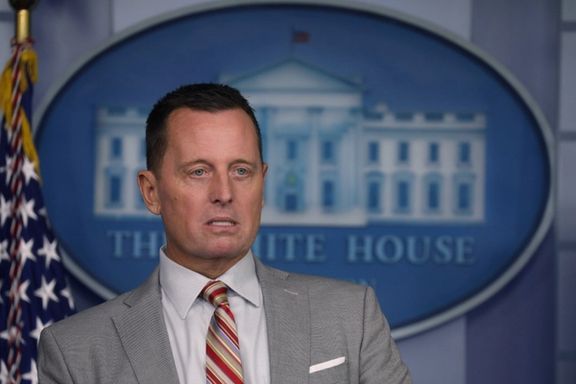
Grenell, who also served as the acting director of national intelligence in the Trump administration, found himself on Iran's list of sanctioned individuals this week, joined by 24 other former Trump administration officials who were officially sanctioned due to what Iran called “terrorist activity and human rights violations".
“I would just note that on the Iranians' list of sanctions, of who they're concerned about, who they want to silence, there are no Democrats, there are no progressives on that list. They're just Republicans” he added.
He said, “I find it as a point of pride when your enemies publicly say that you are a threat to them it just means that you are really doing good work”.
He defended his efforts for the rights of the LGBTQ community, saying that “I believe that if you are an international diplomat and you are working to criminalize homosexuality, then you should not get a visa. Your kids should not get a visa to come to the US. There needs to be consequences for individuals who criminalize homosexuality and push that issue in their country”.
Grenell added that the Iranian regime is terrified of the right-wing LGBTQ campaigns in the Middle East, noting that there is no such fear from the activities of left-wing organizations
There is no fear of the activities of Hollywood types and Disney-type left-wing organizations, he said. “I think the Iranian regime is very pleased that the gay left has never taken this fight to Iran or to the Middle East. I think it’s shocking that the gay left will continue partnering with the Palestinian Authority knowing that the gay pride parade in Tel Aviv is literally a beacon of hope in the entire Middle East,” the Republican campaigner said.